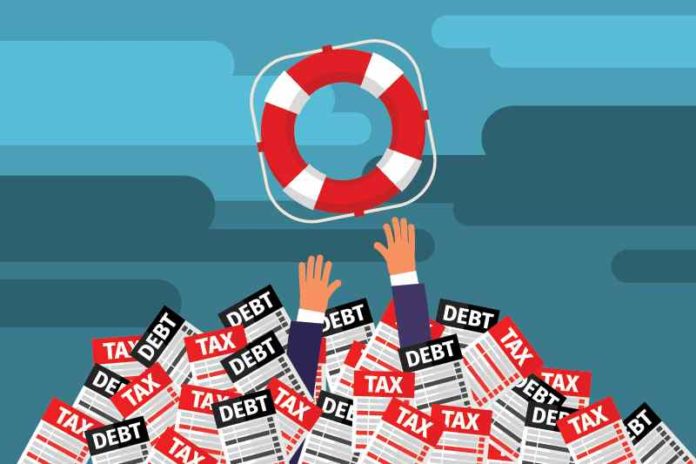The calendar may have turned to a new decade, but taxes will still be due in 2020 like every other year.
Filing your taxes is never a fun activity, especially as a small business owner, but it’s a necessity that carries significant consequences if not done correctly, or at all. Besides, getting your tax refund back is a decent consolation prize that can benefit your small business if the money is reinvested.
One of the biggest risks of not doing your taxes properly is slipping into tax debt. If you wind up in tax debt and ignore the IRS notices that come afterwards, you may face further repercussions such as the government issuing a federal tax lien and levying your wages, bank accounts, and possibly your assets; garnishing your future tax refunds; pestering you with revenue officers or debt-collection agencies; or placing you under an international travel ban.
Keep in mind that any amount of tax debt will also accrue interest and penalties until it is repaid.
In the United States, tax debt is more common than you might think. The IRS estimates that the outstanding federal amount is $381 billion, while tax debt from state taxes is believed to be roughly $146 billion. This means that the combined tax debt in this country is a significant $527 billion.
What’s worse is that this issue may worsen as the American economy rapidly changes, especially as it pertains to small businesses. “The Internal Revenue Service (IRS) reported that at the end of fiscal year 2018 there were 13.1 million delinquent taxpayer accounts. This is a staggering amount,” says Wade Schlosser, CEO of media company Solvable, “and given the rapid expansion of the gig economy, like ride-share drivers, freelancers, or other 1099 contractors, we expect this delinquent number will grow.”
A report by LendEDU analyzed more than 75,000 unique cases of tax debt to find more micro level statistics. For example, the average tax debt amongst Americans in tax debt is $16,849, which is more than the $16,061 in credit card debt that is held by the typical American household.
When it comes to the most common reasons why people end up in tax debt, a couple of causes ring especially true for small business owners. 6.33% of all cases are due to being self-employed, while 4.28% of instances can be blamed on business tax issues.
While small business owners are most likely to fall into tax debt from one of those two reasons, other big drivers of tax debt include owing more than expected (15.69%), back tax penalties (14.38%), and simply not filing your taxes (14.22%).
First and foremost, if you are a small business owner and find yourself in tax debt, the best thing to do is not ignore the IRS, but rather to start a dialogue with the agency to know where you stand. It’s entirely possible that the IRS actually made a mistake with your taxes and you really don’t owe anything extra. Even still, maintaining a working relationship with the IRS will go a long way in resolving your problem.
If the tax debt is real, you have options to work with the IRS to alleviate your situation. You can either negotiate with the federal agency to lower your tax debt bill straightaway, or you can see if you qualify for an offer in compromise. The latter is an IRS program that will reduce your tax liability based on your expenses, income, assets, and amount owed.
If neither of these options work, you can look to agree upon a payment plan with the IRS to repay your tax debt in monthly installments. Payment plans work if you can’t repay your tax debt in full within 120 days and owe less than $50,000. The IRS payment plan is known as a “long-term installment agreement” and the monthly payments that you propose must repay the debt, including interest and penalties, within three years.
One final option to exhaust if your small business is in a dire situation and the tax debt bill is overwhelming is to request a “currently not collectible” status with the IRS. If approved, the agency will neither collect your taxes owed nor seize your business assets or income for a period of time. The debt will still accrue interest and penalties, but this path will at least give you some time to get your finances and small business back to a sustainable position.
In his role at LendEDU, Mike Brown uses data, usually from surveys and publicly-available resources, to identify emerging personal finance trends and tell unique stories. Mike’s work, featured in major outlets like The Wall Street Journal and The Washington Post, provides consumers with a personal finance measuring stick and can help them make informed finance decisions.
Tax debt stock photo by Aniwhite/Shutterstock







